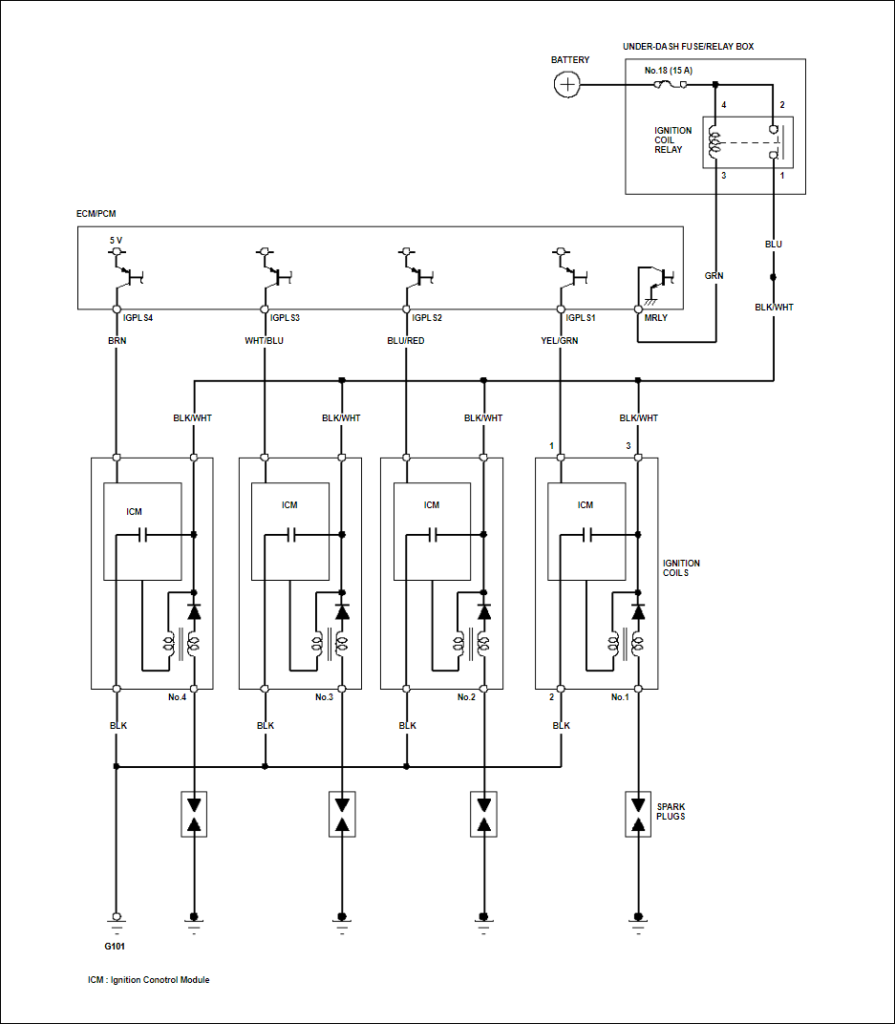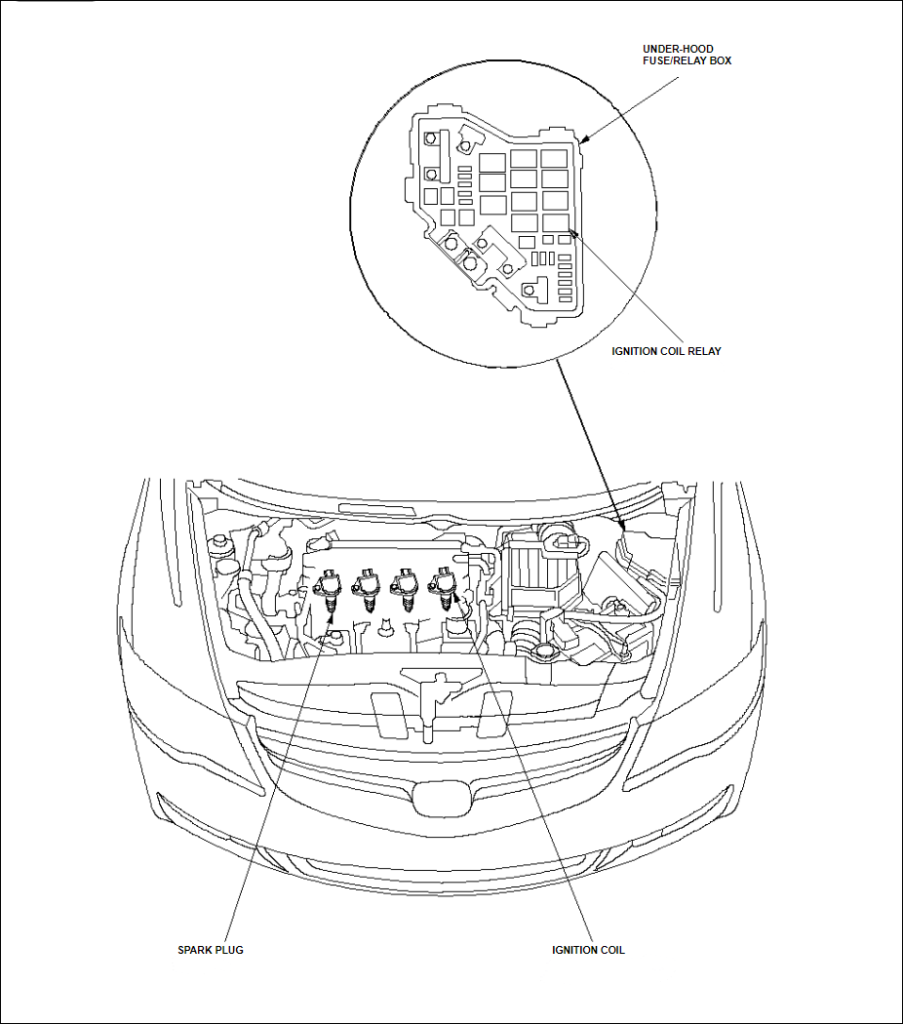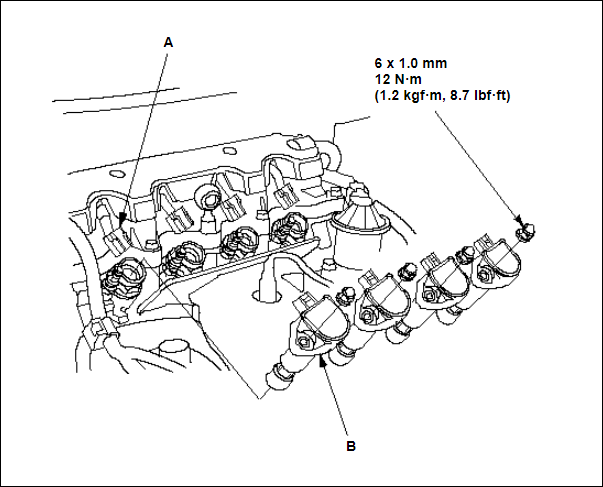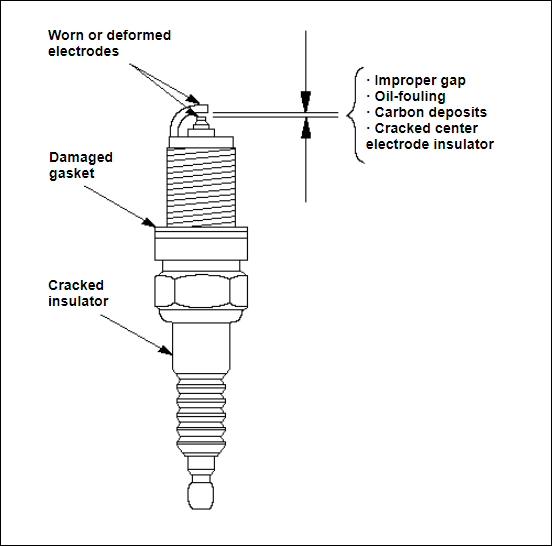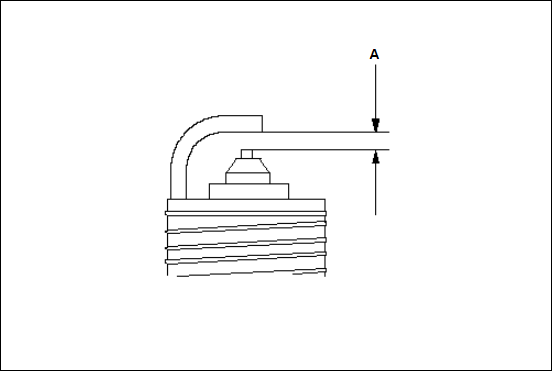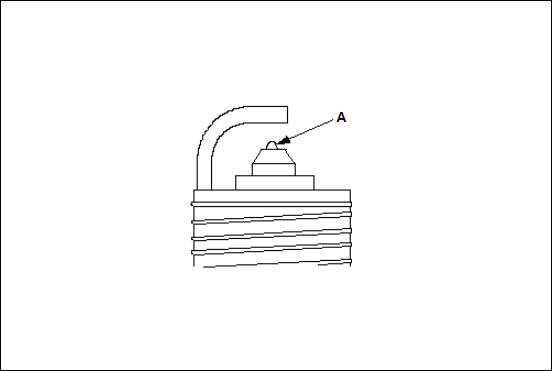Honda Civic ignition system wiring diagram for the Honda Civic 2006. This diagram applies to Honda Civic FD also known as Honda Civic Eight Generation or Honda Civic model years 2006-2011.
The Honda Civic ignition system is composed of the ECM/PCM (Engine Control Module/Powertrain Control Module), the battery, a 15-ampere fuse, the ignition coil relay, the four (4) ignition coils, and the four (4) spark plugs.
For a complete list of available wiring diagrams, please see Honda Civic Wiring Diagram and Honda Civic 2006 Wiring Diagram
Honda Civic Ignition System Component Location
Honda Civic Ignition Coil Removal
STEP 1 – Disconnect the ignition coil connectors (A), then remove the ignition coils (B).
STEP 2 – Install the ignition coils in the reverse order of removal.
Spark Plug Inspection
One – Inspect the electrodes and ceramic insulator.
- Burned or worn electrodes may be caused by:
- Advanced ignition timing
- Loose spark plug
- Plug heat range too hot
- Insufficient cooling
- Fouled plugs may be caused by:
- Retarded ignition timing
- Oil in combustion chamber
- Incorrect spark plug gap
- Plug heat range too cold
- Excessive idling/low speed running
- Clogged air cleaner element
- Deteriorated ignition coils
Two – If the spark plug electrode is dirty or contaminated, clean the electrode with a plug cleaner.
NOTE:
Do not use a wire brush or scrape the iridium electrode since this will damage the electrode.
Use a chemical cleaner such as Carb Spray to clean contamination on the electrode.
When using a sand blaster spark plug cleaner, do not clean for more than 20 seconds to avoid damaging the electrode.
Three – Do not adjust the gap (A) of iridium tip plugs; replace the spark plug if the gap is out of specification.
Electrode Gap Standard (New): 1.0-1.1 mm (0.039-0.043 in.)
Four – Replace the plug at the specified interval or if the center electrode is rounded (A). Use only the listed spark plugs.
Five – Apply a small amount of anti-seize compound to the plug threads, and screw the plugs into the cylinder head, finger-tight. Then torque them to 25 N·m (2.5 kgf·m, 18 lbf·ft).
References on Honda Civic Ignition System Wiring Diagram
Honda Civic Eight Generation on Wikipedia
Honda Civic Audio System Wiring Diagram – Audio Unit, Speaker System, Antenna Module, Radio Remote Switch, Cassette Player Unit, and the Auxiliary Jack Assembly
Honda Civic Brake Lights Wiring Diagram – Left Brake Light, Right Brake Light and Brake Pedal Position Switch
Honda Civic Climate Control Wiring Diagram – Cruise Control, HVAC (Heating, Ventilation, and Air Conditioning), Climate Control, and Rear Window Defogger
Honda Civic Exterior Lights Wiring Diagram – Headlights, Position Lights, Tail Lights, and License Plate Light
Honda Civic Gauge Control Wiring Diagram – Dash Lights Brightness Control, the A/T (Automatic Transmission) Gear Position Indicator, and the Gauge Control Module (Speedo)
Honda Civic Interior Lights Wiring Diagram – Ambient Light, Ceiling Light, Courtesy Lights, Glove Box Light, Map Light, Trunk Light and the Vanity Mirror Lights
Honda Civic Power Windows Wiring Diagram – Power Window Master Switch, Driver’s Window Control Unit, Front Passenger’s Window Switch, Left Rear Window Switch, Right Rear Window Switch, and their corresponding Window Motors
Honda Civic 2006 Security System Diagrams – Security Alarm System, Keyless Entry System (Central Locking System), and Power Door Locks System
Honda Civic Turn Signal/Hazard Flasher Circuit Diagram – Turn Signal Lights and Hazard Flasher Circuit Diagram
Honda Civic Windshield Wiper Wiring Diagram – MICU, Combination Light Switch, Turn Signal Switch, Hazard Warning Switch, Fog Light Switch, Windshield Wiper, Windshield Washer, and Headlight Washer
